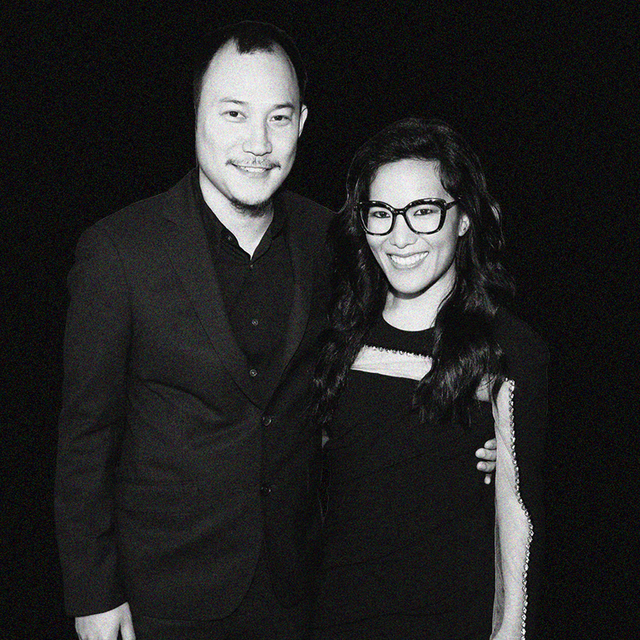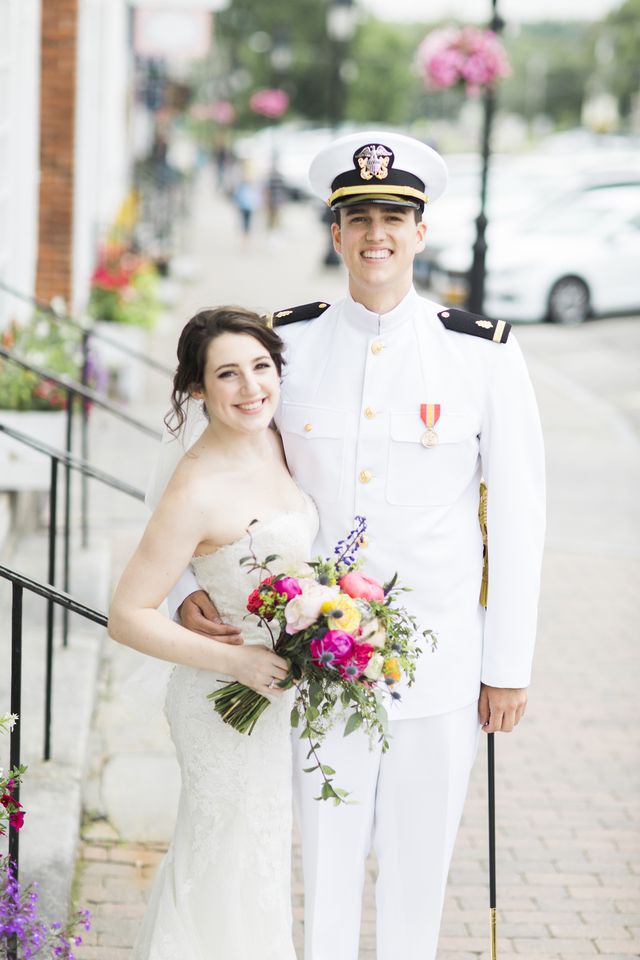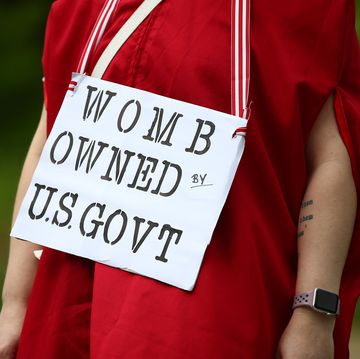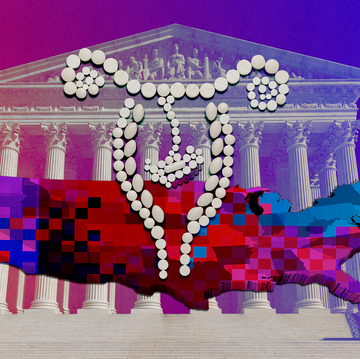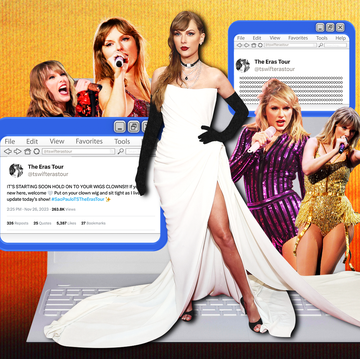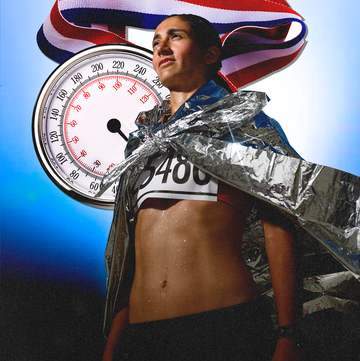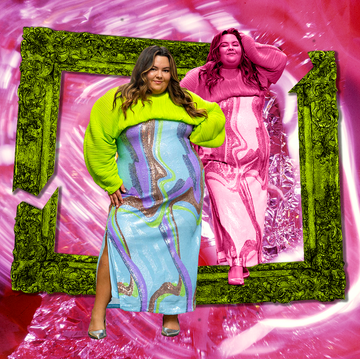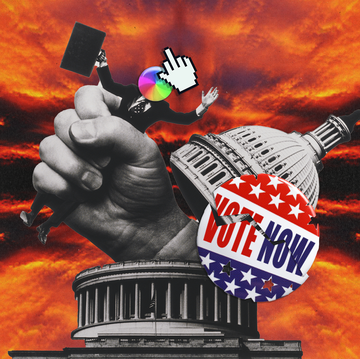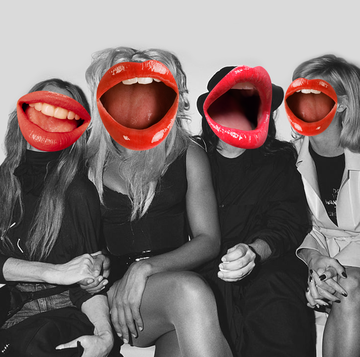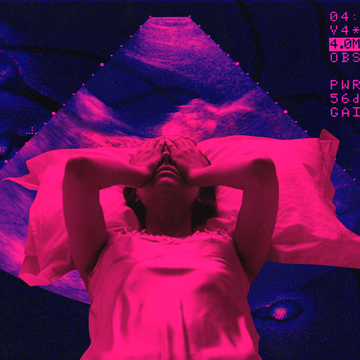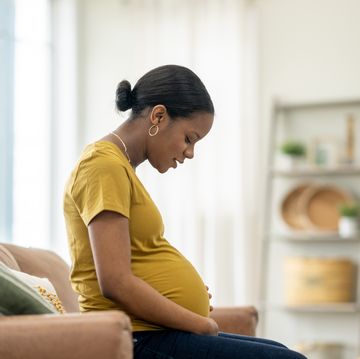I was sitting in bed last week, scrolling through some of the suggested reads on my phone, when I first saw it. “Shit!” I texted the offending article to my husband, who was presumably doing some late-night work downstairs: “Ali Wong and Justin Hakuta Divorce After 8 Years of Marriage.” “Oh, no! That’s so sad,” he sent back, joining me a few minutes later. A vague nausea followed me to sleep. When I woke up the next morning with my stomach still in knots, I tweeted to see if the news about one of my favorite comedians had shocked anyone else. “[The split] feels really personal,” one friend replied. “It hits different,” confessed another.
To be clear, I don’t usually spend what little free time I have commenting on public breakups. For one thing, it’s vain and nosy, and celebrities experience heartbreak and deserve privacy too. And for another, I have a baby, a life, and more important things to do. It’s just that throughout her career, Ali has made her marriage a very public and central tenet of her stand-up shows, and so I recognized much of my own union in hers. She’s given voice and legitimacy to my most personal and explicit thoughts over and over again, especially about what makes the permanence of marriage so tough. When I wanted validation about the ridiculous double standards of parenting, I turned to her 2016 breakout special Baby Cobra. And nowadays, when I’m actually feeling angry about the division of labor in my household and honest with myself about my relationship’s imperfections, I turn to her 2022 tour de force Don Wong. That’s why the announcement of her divorce felt so personal.
In the recent special, Ali made headlines by confessing—loudly, confidently, unapologetically—that she felt tempted to step outside her marriage. She shared her fantasy of having the Avengers cum on her face. She complained about the shitty parts of matrimony and parenting that no one says out loud, like the high stakes that come with fusing your DNA with someone else to create a new human life who will forever ask you, “Where’s Daddy?” She even compared the institution of marriage to prison and calculated how much time she’d have left to sleep with other people after her husband’s statistically likely death at 85 years old. “I want to fuck other people now!” she declared. It was unlike anything I had ever seen from a married 39-year-old woman before, and yet some of it sounded uncomfortably familiar. I remember my husband looking over at me uneasily, presumably remembering some prior conversations we’d had about strains in our partnership, infidelity, and seeing other people. It made me sweat to hear Ali confess those things to millions of people—like she was giving the whispers in my own brain a megaphone—a mixture of feeling guilty, seen, and yet also reassured that those feelings were both normal and acceptable to have.
Here’s the thing: My husband and I are both 30 years old and have been married for nearly five years. We have a 2-year-old daughter, an extraordinary ray of sunshine with whom we’re both deeply obsessed. But before she was born and before we got married, the two of us had already been together for 11 years—yeah, that’s right, we got together when we were 14. Our relationship has extended for more than half our lives, so we’ve seen each other through some of our most formative years. And while those experiences have built a powerful and unique bond between the two of us, it also means that we have never been single as adults. Our only serious romantic relationships have ever been with each other, and it has always made me feel like an alien that I can’t publicly admit that sometimes it’s hard to know if we’ve made the right choice. As we’ve waded through the past few years of pandemic parenting, both with demanding careers and aggressive ambitions plus the general sense that life is short and unpredictable, those doubts have intensified. But Ali made me feel like at least I wasn’t completely alone.
Watching Ali confess to the world that she felt tempted to cheat on her husband and talk about wanting more than the life she already had was so damn validating. Watching Don Wong, I began to accept the possibility of experiencing marriage FOMO and having a happy, functional partnership at the same time. For the first time ever, my husband and I were copping to the difficult feelings we had about one another. We were speaking more openly about the interests we’ve had in other people, propositions we’ve received, and opportunities we’ve passed on during our nights out. We were giggling together over crushes on Hollywood stars and television characters. How refreshing to see this side of my husband, as a human man outside of his attraction to me and me alone. We had been trying to find intimacy in radical honesty with each other and seemed to be on the right path.
But now I’m here wondering whether the only high-profile example we had of a healthy marriage that normalized finding other people attractive or having second thoughts is not, in fact, a healthy marriage at all? What does that mean for our partnership? Even posing these questions feels way more fraught and way more raw than it would have in the pre-Ali-Wong-divorce-news days.
Maybe I was naive to take comfort in the version of matrimony that Ali has been describing over the past few years. Maybe I should have read between the lines instead. Promising to stay with one person forever in front of “your grandma and all your coworkers,” as Ali puts it, is a tall order even in the best of circumstances, and we all know that the past couple of years have been anything but. At the end of the day, I just want Ali and her family to be happy—oh, and another Netflix special wouldn’t hurt either.
